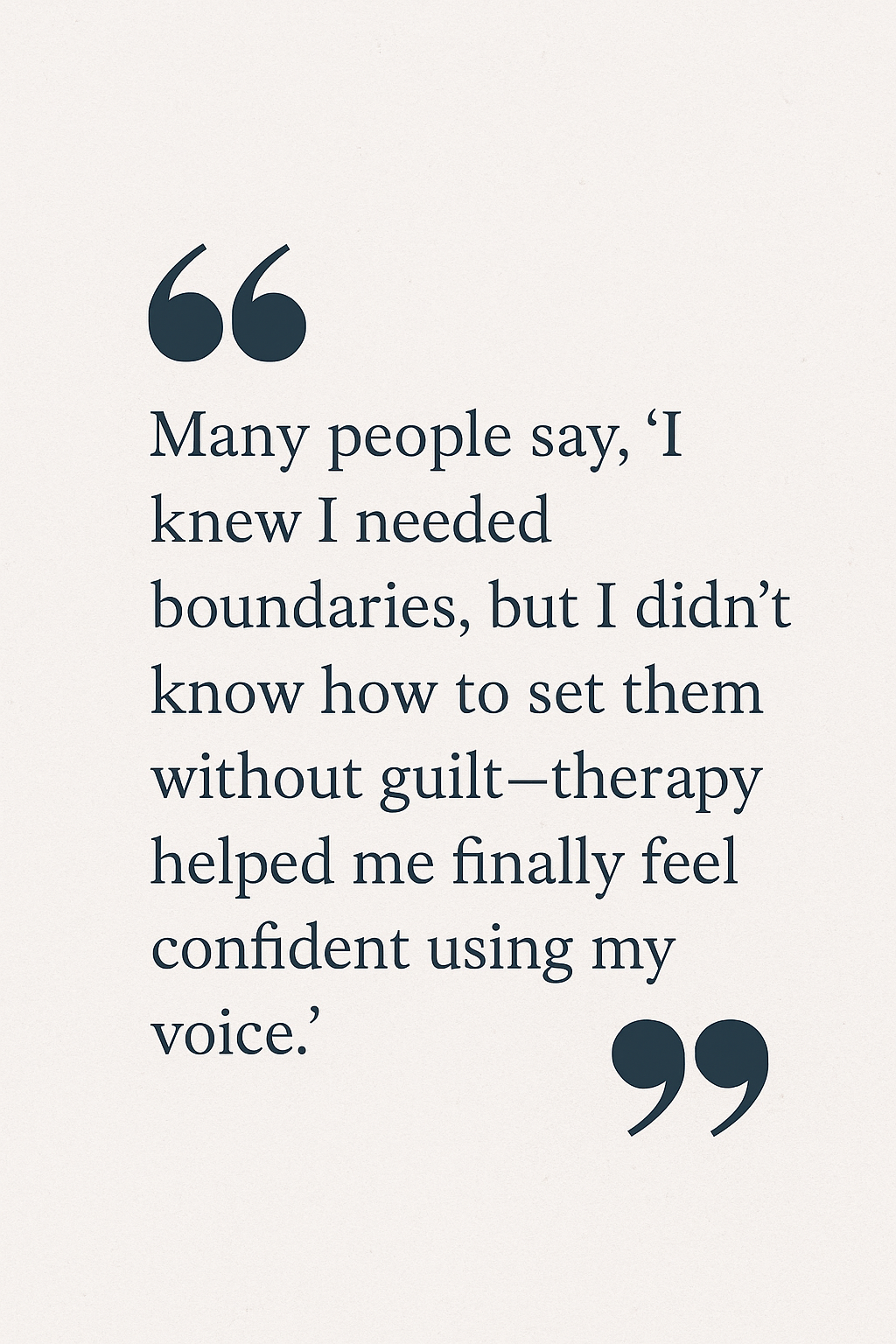Why You Still Feel Stuck—Even When You're Trying So Hard to Heal
Ever feel like you’re spinning your wheels on your healing or growth journey? You've read the books. (And there are SO many) You've journaled. Maybe you've tried meditating, changing your habits, even talking things through with a friend. And yet, something inside still feels... stuck.
You’re not alone—and you’re not doing something wrong.
The Invisible Layers of Emotional Healing
Emotional healing isn't linear. It often unfolds in layers—like peeling an onion. Many people find that despite their best efforts, the deeper patterns rooted in early experiences, trauma, or limiting beliefs continue to play out. This isn't because you're broken. It’s because healing isn’t just about what you know—it’s also about what you feel and hold in the body.
That’s where therapy can make the difference.
Why Therapy Works When Self-Help Doesn’t
Self-help can be empowering—books, podcasts, and journaling give us insight and hope. But if you’ve ever felt like you understand your issues but can’t seem to change them, you’re not alone.
That’s because self-help operates mostly at the conscious level. It appeals to your logic, your motivation, and your willpower. But many of our core patterns—like anxiety, perfectionism, self-sabotage, or people-pleasing—aren’t logical. They’re subconscious, shaped by past experiences and stored in the body.
Therapy, especially when it integrates mind-body approaches, works at a much deeper level. Here’s why:
1. Therapy Reveals Blind Spots You Can’t See Alone
A skilled therapist acts like a mirror—helping you notice patterns you’ve lived with so long they feel “normal.” You may think you’re just “too sensitive,” when in fact you’ve learned to anticipate others' needs to stay safe in childhood. Therapy helps name these patterns and reframe them with compassion.
2. You Don’t Just Talk—You Heal Through Relationship
Therapy offers a safe, consistent relationship where you can explore difficult emotions without fear of judgment or rejection. For many, this is the first time they’ve experienced true emotional attunement. Healing happens not just from what is said, but from being truly seen and heard.
3. Your Nervous System Learns to Regulate
Talk therapy, combined with approaches like Splankna Therapy, helps release stuck emotional energy from the body. When trauma is held in the nervous system, no amount of positive thinking will override it. Therapeutic tools help restore safety and calm from the inside out.
4. Therapy Creates Lasting Change—Not Just Insight
Self-help can tell you what needs to change. Therapy helps you discover how to make it happen. It supports consistent practice, emotional integration, and accountability—so your growth isn’t just theoretical, but embodied and lived.
Many people say, “I knew I needed boundaries, but I didn’t know how to set them without guilt—therapy helped me finally feel confident using my voice.”
Signs It Might Be Time to Try Therapy
You feel like you’re repeating the same patterns, despite your efforts to change
You know what to do—but you can’t seem to follow through
You’re experiencing anxiety, burnout, or emotional numbness
Life transitions have left you feeling unmoored
If this sounds familiar, working with a therapist can help you reconnect with your inner clarity, strength, and direction.
You Deserve to Feel Like Yourself Again
At True North Vitality, we specialize in helping people move through life transitions, emotional stuckness, and anxiety with practical tools and deep compassion. You don’t have to stay stuck.
Ready to take the next step? Schedule a free consultation here.


